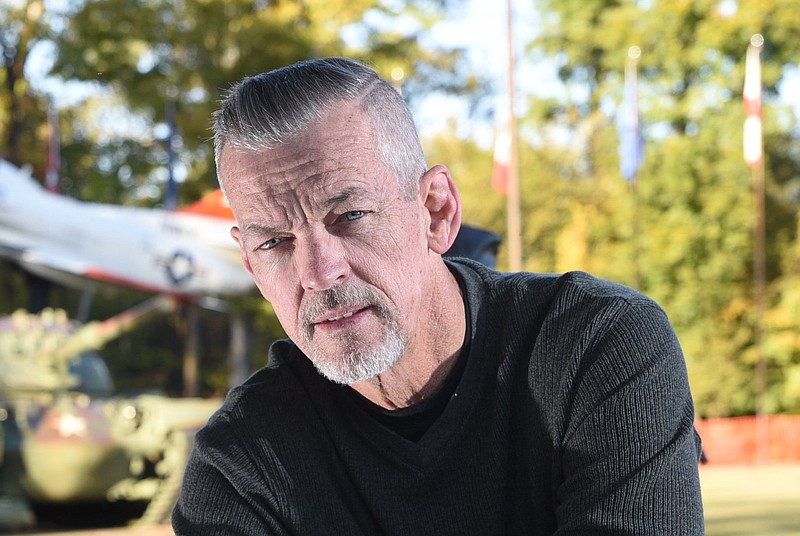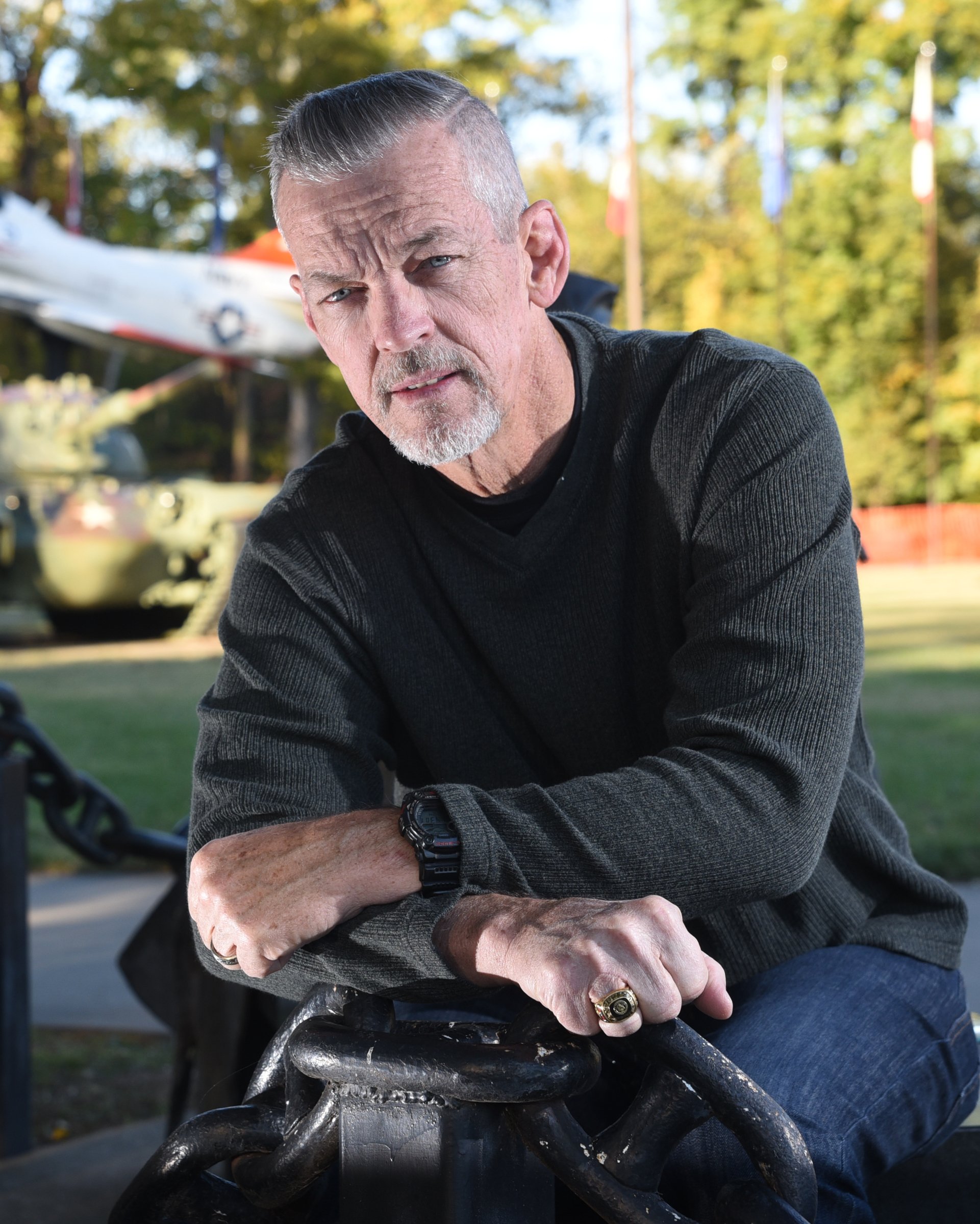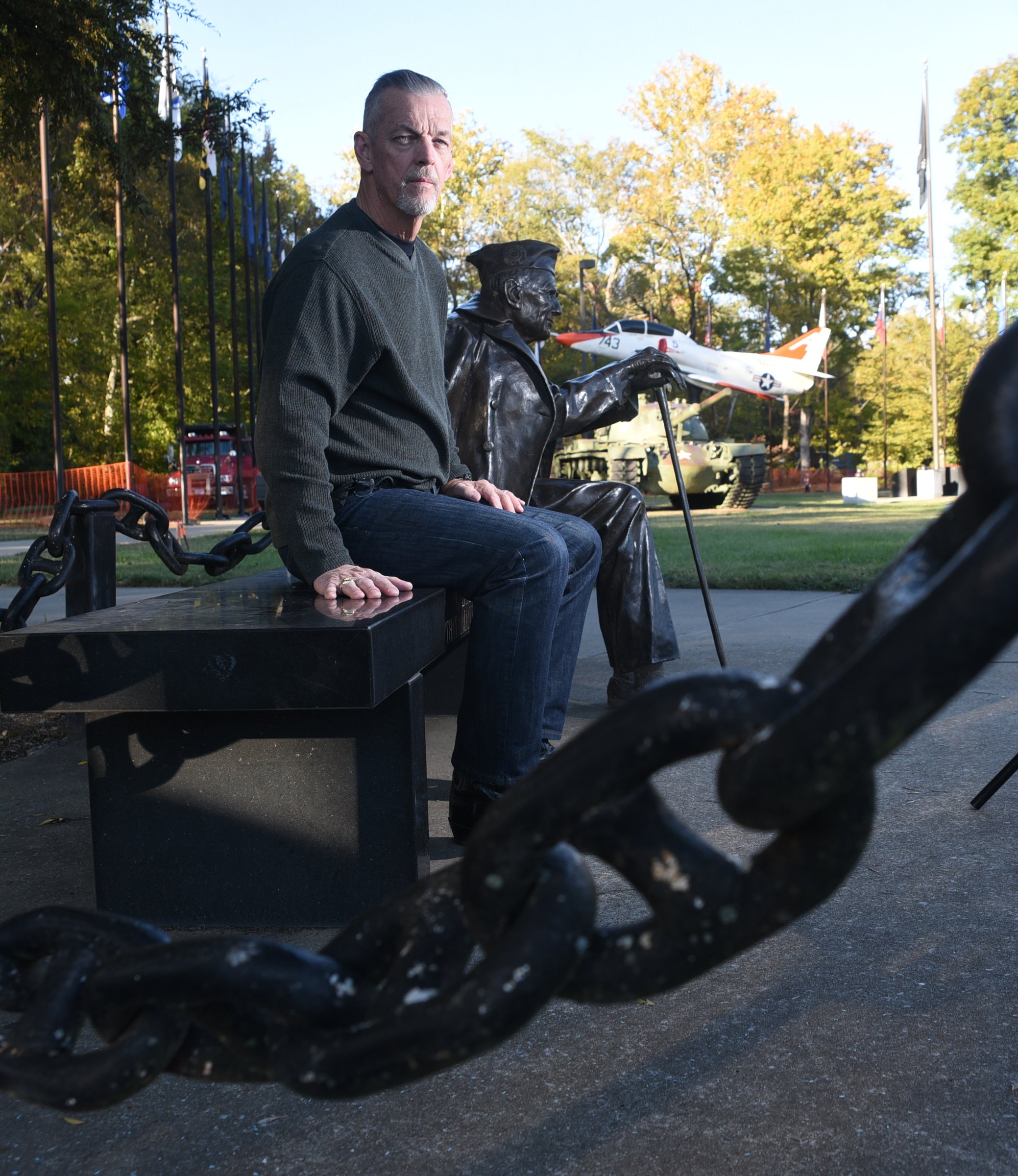On weekends, 62-year-old Dane Snowden likes to run at Collegedale's Veterans Memorial Park.
He's measured out a two-mile loop, over the park's bridge, through grassy fields, circling the 50 state flags and passing the marbled structure that reads "All gave some, some gave all."
When Snowden's finished, he stops by the statue of a conscientious objector from World War II and a statue depicting a medic rendering aid to a fellow soldier. He pats each of their heads and says a prayer.
For more than two decades, this was Snowden's ritual each time he was deployed and had to leave home.
A member of the Georgia Army National Guard since 1980, Snowden spent more than 17 years on active duty, deployed overseas for the first Gulf War, the war in Afghanistan and the Iraq War.
Known as "Snowman" in the Guard, he was mobilized six times after 9/11 to places across the Middle East and Africa, and even worked for several months at the Pentagon in Washington, D.C.
An electrician by trade, Snowden often found himself - to his dismay - in charge of human resources and personnel because of his leadership skills, as well as serving in construction, base security and transportation management roles.
Before his retirement in 2015, Snowden worked his way up to the rank of lieutenant colonel. He also earned two Bronze Stars, awarded for actions and performance while in a combat zone, and Georgia's Oglethorpe Distinguished Service Medal.
(Read about other local veterans in our "21-Veteran Salute" series here)
Though he recalls many bad days, it wasn't until one of his final tours in Logar Province, Afghanistan, that the danger of active war zones began to take its toll on him.
Snowden was stationed on a forward operating base, called an FOB, that experienced heavy amounts of indirect fire from enemies hiding out on the mountainsides that surrounded it. Sirens warning of potential fire became a part of daily life.
"We took a little over 170 rounds, indirect fire, in 250 days," he said. "We were mentally rattled. We were jarred after that."
Snowden recalls one day, watching seven rounds go off and one strike a tent barely 30 feet from where he and others were.
"When one hit, the earth just shakes and it makes this really weird, high-pitched 'bing,' sound. You can feel it in the core of your body," Snowden said. "I saw it hit the ground and it just made a dent. I can remember seeing smoke come up from the tent and said 'Sir, someone got hurt. We gotta go.'"
Snowden and two other soldiers ran to the tent, which was billowing smoke, and transported the injured soldier on a gurney.
"After that happened, there was no more joking around," Snowden said.
BIO
Name: Dane SnowdenAge: 62Branch of military: U.S. Army and Army National GuardYears of service: 1975-1979, 1980-2015
For much of his service, Snowden wanted to be deployed with his troops. Even when he worked in the Pentagon he felt "cagey and bored." He felt like he was missing out and was almost ashamed when others were fighting instead of him - but this time, he wasn't sure.
After being in the military for so long, Snowden said he didn't often think about his safety.
"You've trained all your life to do this. You toughened up mentally, you're sound. You met peace with whatever God you worship and you're ready to go."
But after that mission, Snowden said, he finally doubted whether or not he wanted to go back.
Snowden was finally flagged for potential post-traumatic stress disorder just before being sent on his third tour in Afghanistan, and he was ordered to report to a VA hospital.
"You just learn to adapt," he said. "I just think of this three-legged deer I saw one time. He could run as fast as the wind. He didn't know he was supposed to have four legs."
Since 2015, Snowden has attended counseling at least once a month. He said he can tell when it has been a while since his last session.
Snowden said many soldiers are not only ashamed of the stigma associated with PTSD or mental illness in the military, they don't want to be diagnosed because they are often put on disability, discharged or medically retired after receiving one.
His experiences aren't uncommon, he said. There are thousands of struggling soldiers who experienced the same things he did - or worse.
"So many people are hurting," Snowden said. "People need to know that there's a lot of people out there [that are] hurting and they don't complain."
Contact Meghan Mangrum at mmangrum@timesfreepress.com or 423-757-6592. Follow her on Twitter @memangrum.
SEEK HELP
If you are a veteran in crisis, or you’re concerned about one, call the Veterans Crisis Line at 1-800-273-8255 and press 1, or send a text message to 838255. More resources are available online at www.suicidepreventionlifeline.org/help-yourself/veterans/.


